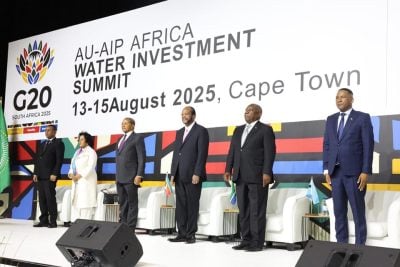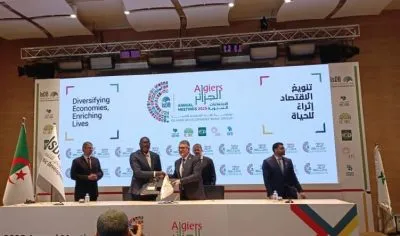This article was produced with the support of Ecobank
Did you find it a struggle to be a woman rising to the boardroom?
I wouldn’t use the word “struggle”. I was fortunate to work for organisations over the years that gave me opportunities to develop diverse skills and to take advantage of interesting opportunities that arose. I put my hand up, went through the process, and was given the chance. I wouldn’t say that I struggled to rise in a corporate environment, due to the good fortune of working for organisations that were open to opportunities for all dimensions of diversity.
The challenges I faced arose from the difficulties of juggling between being a mother, raising young children and managing professional commitments. This is a reality for many women, the world over.
This is where the corporate entity comes in, by making it possible for women to juggle their lives effectively, for example through flexible working and crèche programmes.
Every organisation must be deliberate about creating an environment that enables female employees put their best foot forward.
Aside from the challenges of juggling motherhood with a professional capacity, what other kinds of challenges do women face around the world?
Looking at the wider question of struggling to rise in a corporate environment, the biggest challenge, I will say, that women face in the workplace is unconscious bias. I think it is absolutely critical to call out these biases for what they are, and to openly deal with them. This in part should be driven by the organisation, but also by female leaders: we should be bold enough to call out what may present as an unconscious bias, and have an open conversation around it. Since it is unconscious, I believe the likelihood of it being taken and addressed in a constructive manner is much higher.
What have companies such as Ecobank done to restore the opportunity balance between the genders at boardroom level?
Let me first answer this from a broader perspective. While challenging these unconscious biases, speaking about leadership, it’s also important to deconstruct these stereotypes by showcasing successful women and highlighting the value that they bring to the team.
We have a robust talent identification and development framework as an organisation and embedded in this are relevant tools for ensuring appropriate leadership development for female talent. We also have a very targeted approach toward actively seeking women for senior positions.
For example if a senior role comes up, as part of the selection process we will expect to have female representation. If there are no women, we consciously seek to identify why, and encourage more women to put their names in the hat for these roles. These are just a few of the very deliberate actions we have taken when it comes to building the leadership pipeline.
We have gone further to set a directional target of 40% for female board representation across our network, a target we are confident will be achieved in the not-too-distant future.
Has building the pipelines you mention been a costly exercise and is the payoff worth it?
I don’t see it as being costly, but it does require focus. Further down the hierarchical ladder, the gender mix is almost evenly balanced. Natural laws apply: there is as much quality in the female pool as the male pool, and where a level playing field is actively encouraged, we will see more female leaders emerging.
If we are deliberate about creating opportunities for female talent to emerge and then for this talent to be nurtured through pipelines, just as we would for our male colleagues, the organization will be better for it. As I said, I don’t see that as being a cost. Research has shown that there is a substantial performance differential, up to 48%, between the most and least gender-diverse organisations. But I’d like to believe that a board that is dominated by women will be just as disadvantaged.
In other words if a board were dominated by women would it perform so well? I don’t think so. You need diversity.
What does your role with the bank’s diversity and inclusion programme entail?
My co-chair on the Bank’s Diversity and Inclusion Council is a gentleman and together we direct the work of the Council, giving strategic guidance. We create legitimacy across the organisation, because when you set up a diversity and inclusion programme such as this, one of the greatest challenges is creating belief that it will have a lasting and meaningful impact across the organization, and not simply be a flash in the pan.
The Council is not just focused on gender but other dimensions such as age and ability. These are all-important for an organisation to thrive. There are a lot of unconscious biases towards different dimensions of diversity and we want to have programmes to create awareness of these, foster a more inclusive workplace/culture and also equip leaders to be more effective in managing diverse teams.
Ecobank is present in 35 markets with different cultures and different regulations which presents an interesting tapestry. The early work we have started as a Council really brings home how diverse an organisation we are, and the need to be conscious of, and harness these differences.
The Council comes up for its first anniversary soon and I expect us to be celebrating by showcasing the successes of the programmes that have taken flight.
Do you think Ecobank is setting an example to other large corporations in Africa and in turn to the rest of the world?
It’s been three years since Ecobank set up Ellevate, a programme for women in business. We committed to going out there to make a difference for women, so they can thrive economically. This programme is not only about capacity-building; it is also about providing appropriate financial solutions, affordable financing and support for these businesses, micro, small, medium and large, to thrive, which is absolutely crucial.
We really do want Ecobank’s Ellevate programme to have an impact – not just continent-wide in Africa, but also to provide a model for the rest of the world. We are constantly enhancing this programme to enable it to have meaningful and long-lasting impact on the economic development and success of the continent.
 Sign in with Google
Sign in with Google 



